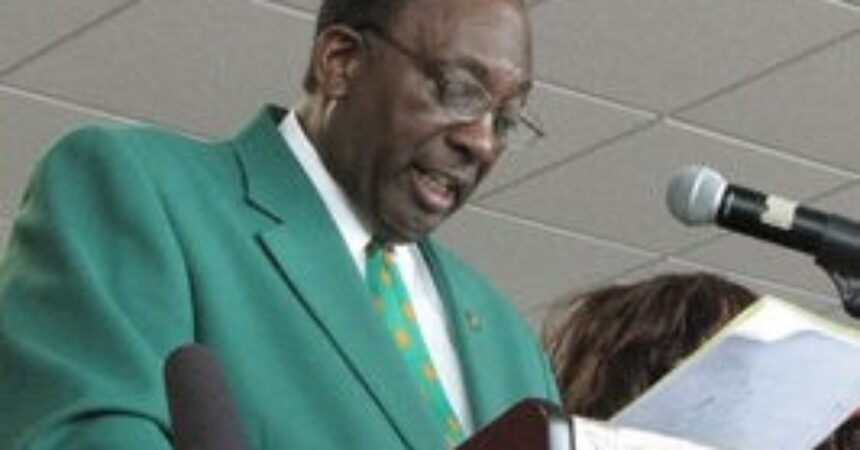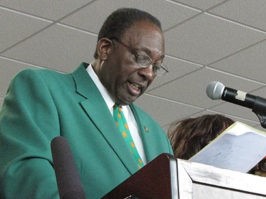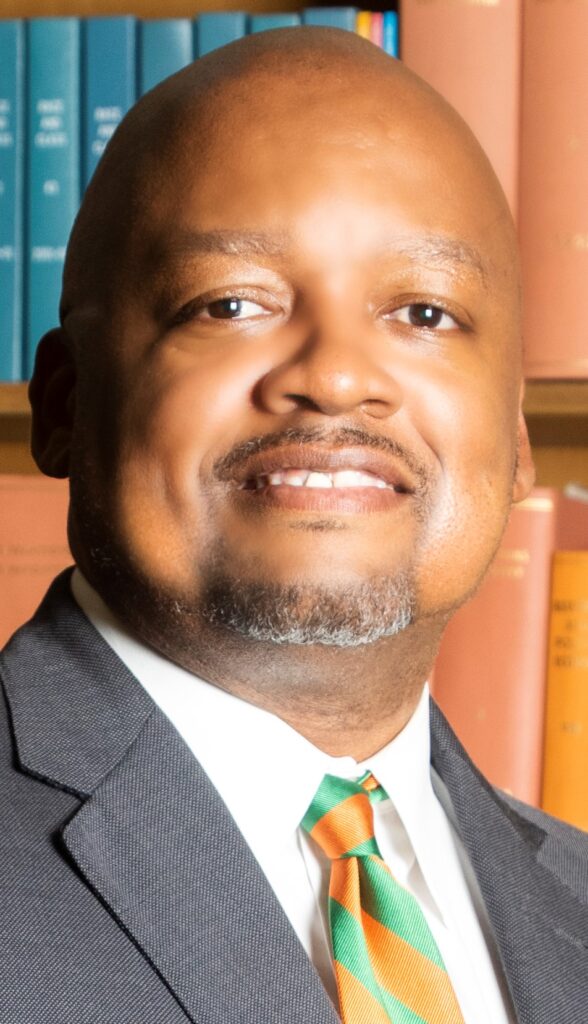
Hundreds using designated financial programs at FAMU to continue education

Tommy Mitchell 
William Hudson
By St. Clair Murraine
Outlook Staff Writer
On the surface, Jennifer Charles’ life seems like that of any college student.
Hers is not ordinary, though. She sighed subtly before she began to tell of the challenges that made her eligible for the Dorothy Henderson Scholars Program at FAMU.
As a junior attending Dr. Phillips High School in Orlando just two years ago, she found out that the Green Card she used to come to America from Haiti had expired. At about the same time, she came out to her father about her bi-sexual lifestyle.
He asked her to leave their home, putting her into a homeless situation.
A little more than two years later, she is an American citizen and beneficiary of vital financial support through the Dorothy Henderson Scholars Program and other financial resources. With that and a job as a resident assistance, Charles is on course to graduate a year early with a criminal justice degree next spring.
The emotional impact of her experiences made the day she reached out to FAMU one that is seared in her memory.
“The person who answered (the phone) had been extremely helpful; helping me find different ways to acquire funding for school,” she said. “She let me know about the food pantry, helped me set up my housing. She’d just been extremely helpful in a lot of ways.”
Charles was eligible for the help she received because she qualified under the McKinney Act, a federal program to provide education funding for homeless high school students.
Take Stock in Children Inc. is another organization that FAMU relies on to help low-income students who are Florida residents to graduate from college.
Charles is also on a growing list of students who are eligible for the Henderson Scholars Program, which is administered by Student Affairs through the FAMU Foundation.
“We want to take all of the barriers out of the way so they can focus on their academics,” said William Hudson, Vice President of Student Affairs. “We also provide them other resources like the counseling center, the career center.
“We look at the whole student to make sure we are having an impact on those areas that may have a deficit so that the student can build confidence to be successful.”
However, as much as is done to assist students, funding is essential to keep the programs going. Hudson recently called on Tommy Mitchell to assist with fund-raising.
So far, the campaign had raised about $20,000. Reaching at least $100,000 is the goal, both men said. Mitchell’s formula for raising the money is pretty straightforward.
He figures the goal could be attained if at least 3,000 alums gave at $100 each. Some have given much more, he said.
With almost all of the eligible students coming from a low socioeconomic background, helping them graduate is essential, Mitchell said.
“If they want to live relatively comfortable in America post secondary education is absolutely necessary,” said Mitchell, a 1961 FAMU grad and former two-term president of the national alumni association. “Most of the good-paying jobs almost require that they have a college education.”
Several students who are getting assistance from FAMU found themselves without part-time jobs that they lost because of the pandemic. Most are still pushing on, although staying in college might seem like a gamble for them, Mitchell said.
“That’s the alternative for them to escape poverty,” he said. “I’ve seen this because for years people would say college isn’t for everybody, but what you can say now is if you graduated but just made it you’re not going to have the money to take care of yourself.”
The program is more than money. It helps students find resources such as clothes and food banks. Some students also live in a designated block of dorms on campus.
“We call it filling the gap; the gap between what they need and what they’re already receiving to be successful,” Hudson said. He added that the program is also aimed at limiting the amount of debt that students have when they graduate.
Leaving college with debt “increases anxiety and creates a motivation for students to go straight into the workforce, as opposed to going to grad school, law school or medical school,” Hudson said. “They don’t want to accumulate more debt. So if we can help by providing assistance so that students don’t have to take out loans, then I think it’s a well-worth-it idea to go through that.”
Charles agrees that the financial assistance programs will help reduce debt that she doesn’t want to take into her future.
“It’s amazing,” she said of the programs. “I plan on going to law school and the least amount of loans I can take out would be extremely helpful.”







